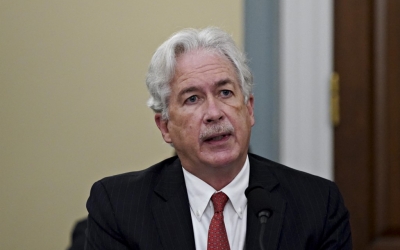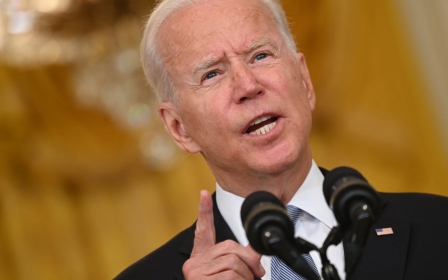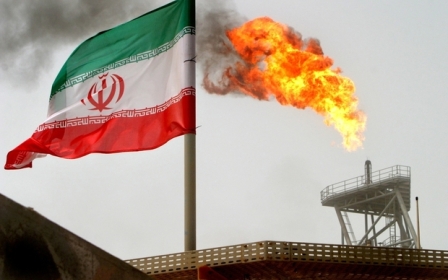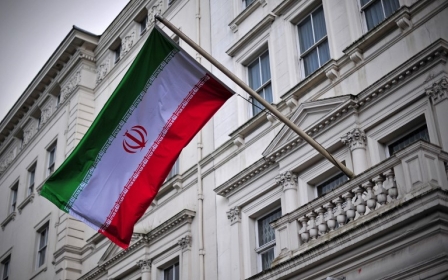Biden and Israel's Bennett to meet at White House next week to discuss Iran
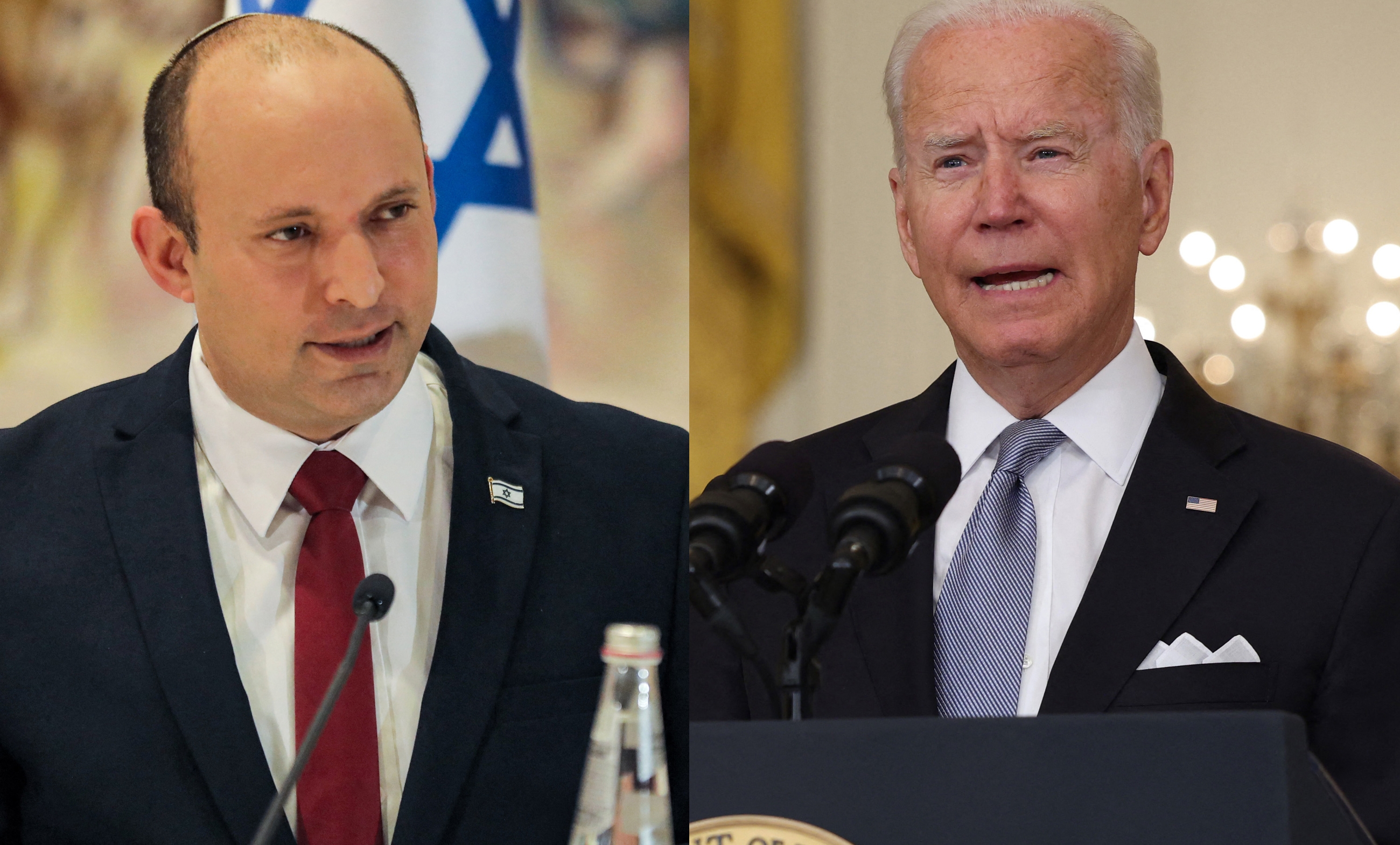
US President Joe Biden will host Israel's Prime Minister Naftali Bennett at the White House next week, with the stalled Iran nuclear talks being a main topic of discussion.
"The President and Prime Minister Bennett will discuss critical issues related to regional and global security, including Iran," the White House said in a statement.
Bennett said at a news conference on Wednesday that the meeting "will focus on Iran", but the White House also promoted "an opportunity for the two leaders to discuss efforts to advance peace, security, and prosperity for Israelis and Palestinians".
The White House added that the visit, scheduled for 26 August, will "strengthen the enduring partnership between the United States and Israel, reflect the deep ties between our governments and our people, and underscore the United States' unwavering commitment to Israel's security".
The Israeli prime minister said he planned to come to the White House "very focused with a policy of partnership that aims to curb Iran's destabilising, negative regional activity, its human rights abuses, terrorism and preventing its nearing nuclear breakout", as quoted by Reuters.
Earlier this month, US Central Intelligence Agency director William Burns held talks in Israel with Bennett that also focused on Iran.
Negotiations between Iran and six world powers to revive the 2015 nuclear deal have hit an impasse since they began in April.
Former US President Donald Trump left the deal in 2018 and reimposed devastating sanctions on Tehran. Iran continued to abide by the agreement but since 2019 has begun to reduce its commitments.
No alternative to nuclear deal
Since taking office in January, Biden and his administration have sought a return to the deal. However, the last round of negotiations in June ended without a set date for the next round.
A report by the UN atomic watchdog said that Iran is accelerating its enrichment of uranium closer to weapons-grade levels, although Iran has insisted it does not seek to build a nuclear bomb.
The new Israeli government led by Bennett has promised that any objections it has to a deal would be discussed privately with the White House in a bid to repair strained ties with the Democratic Party and maintain a more bipartisan position with its closest ally.
While Bennett has said he is against the deal, Israeli Foreign Minister Yair Lapid said last week that he saw no alternatives to the deal, marking a departure from Israel's longstanding and outspoken opposition.
Tensions in the region spiked late last month following an attack on an Israeli-managed tanker off the coast of Oman that killed two crew members. The US, UK, and Israel blamed the attack on Iran, but the Islamic Republic denied any involvement.
The scheduled visit also comes amid a turbulent time at the White House, with the Biden administration dealing with the fallout of its decision to fully withdraw US forces from Afghanistan and the takeover of the country by the Taliban.
In a controversial speech on Monday, Biden defended his decision to withdraw amid chaotic scenes at Kabul international airport, where thousands of desperate civilians attempted to flee the country.
Israeli officials told Axios, on condition of anonymity, that they hoped the situation in Afghanistan would make the US administration rethink potentially pulling its forces out of Iraq and Syria.
"The US wants to disengage from the Middle East but finds out the Middle East is running after it," two officials told the news site.
Middle East Eye delivers independent and unrivalled coverage and analysis of the Middle East, North Africa and beyond. To learn more about republishing this content and the associated fees, please fill out this form. More about MEE can be found here.


